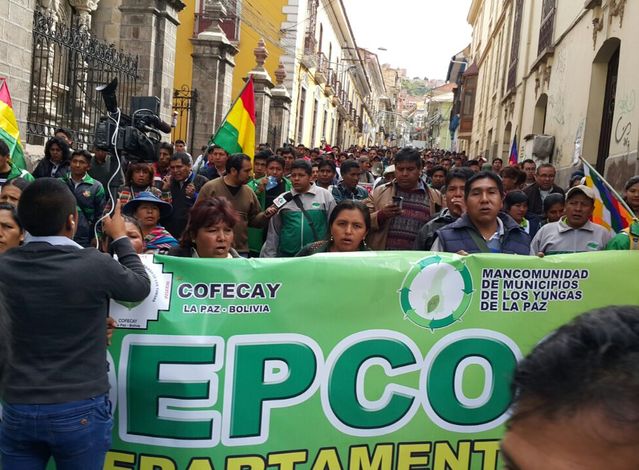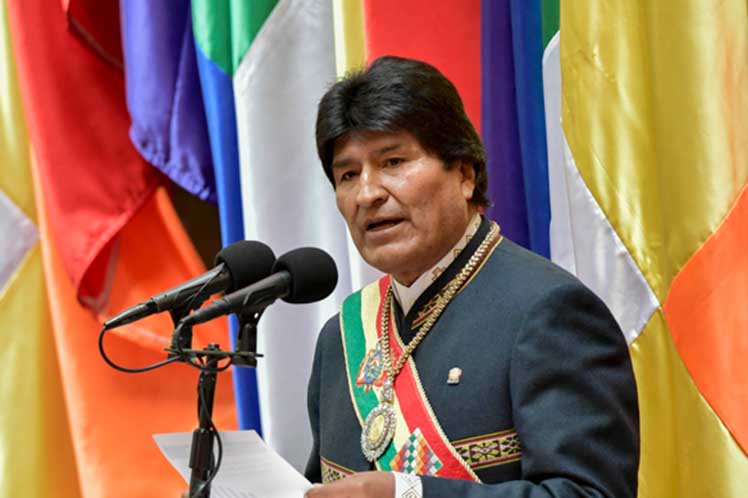
Internecine cocalero violence in Bolivia
Violent tensions are flaring in Bolivia’s capital between rival factions of one of the country’s coca-grower unions, which oversee sales to the legal market. Clashes broke out in early August between two factions of the Departmental Association of Coca Producers of La Paz (ADEPCOCA)—one loyal to President Evo Morales and his ruling Movement Toward Socialism (MAS), the other to imprisoned union leader Franklin Gutiérrez. The former group staged “parallel” elections for new union leaders in late July, but the latter refuses to recognize the poll, and demands the release of Gutiérrez and other imprisoned unionists. The first clashes came as MAS supporters besieged the ADEPCOCA headquarters in La Paz, demanding that the Gutiérrez supporters surrender the offices. (Photo: La Razón)




